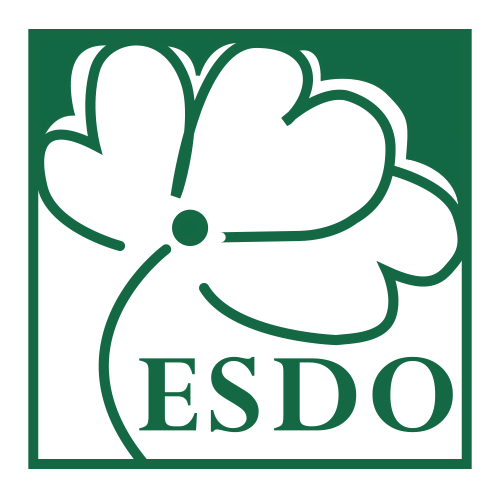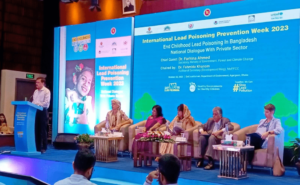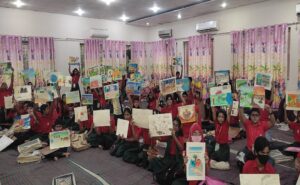29-31 May, 2018, Nairobi, Kenya: In a resolution adopted at the third meeting of the UN Environment Assembly (UNEA-3), Member States agreed to establish an Ad Hoc Open-Ended Expert Group to examine options to combat marine plastic litter and microplastics from all sources, including through global legally binding mechanisms. The ad hoc open ended expert group meting was held in Nairobi, Kenya from 29-31 May.
Dr. Shahriar Hossain, Secretary General of ESDO took part in the meeting as a representative of ESDO and made an intervention on marine plastic litter. Dr Shahriar Said,” Thank you, and good morning co-chairs, excellencies, distinguished delegates and colleagues.
I represent ESDO, and I also speak today on behalf of the joint position of six major groups: Women, NGOs, Children & Youth, Farmers, Indigenous Peoples, and Science & Technology.
We would like to thank UNEP for the background paper, as we think that it is critical that the options we develop are well informed so we can only focus on effective solutions. In that respect we would like to make a few comments about specific points in the paperas we found that number of responses options presented are mistaken or misconstrued:
- [Waste to energy solutions are repeatedly cited as meaningful solutions to marine litter, despite limited evidence that these technologies are efficient, effective, or scalable and without regard to their negative impacts on human health and local environment. Incineration, plastic to fuel and Waste to Energy produce greenhouse gases and toxic compounds, they require a constant (or rising) amount of waste to be produced and create a lock-in effect that prevent the adoption of more systemic and innovative solutions. As a result we believe they cannot be considered environmentally sound approach and should not be encouraged;
- Recycling is discussed but without consideration of the toxic content of most plastics leading to toxic recycling; Hazardous substances must be phased out of plastics at design stage. The presence of Toxic substances in plastics (e.g.: Flame retardants, BPA, Phtalates etc…) makes recycling toxic by recirculating these toxic substances in new products (toys, textiles, food contact materials etc…)
- The mention of research into alternative bio materials does not consider the competition with other land use, food production, and fails to distinguish between bio-materials and bio-plastics;
- Increased investment are only considered in the context of waste management facilities, it should focus instead on zero-waste plans and strategies;
- Examples from national and regional policy options still largely focus on waste management rather than limitations on production, recommendations for design, or extended producer responsibility
- Finally, as was highlighted by my colleague yesterday,marine plastic pollution is an issue of global concern that cannot be addressed at national level and that needs to be clearly acknowledged as we move forward.
We believe that our mind set should be changed and together we will achieve our common goal to
#BEAT the PLASTIC POLLUTION at large.
Thank you all for your time, attention.”




